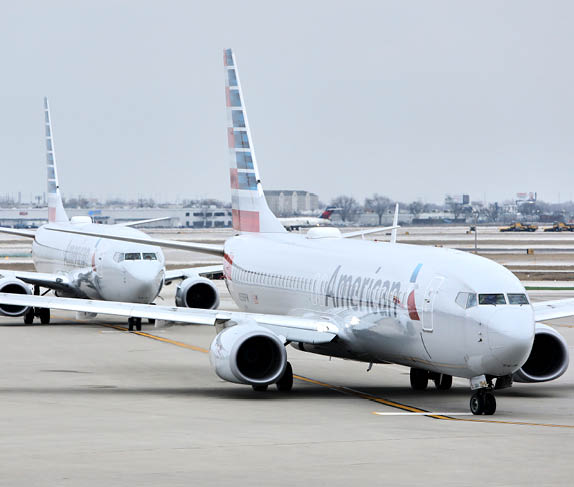Apollo Aviation Group (Apollo Aviation) and Sciens Capital Management have raised approximately $595 million from a broad array of investors for its second aviation fund, Sciens Aviation Special Opportunities Investment Fund II (SASOF II). With this deal Apollo Aviation now has over $1.4billion assets under management (AUM).
SASOF II is managed by Apollo Aviation, a full service commercial aircraft asset manager jointly owned by its founders and principals, William Hoffman and Robert Korn, and by an affiliate of Sciens Capital Management LLC. SASOF II is a follow-on fund to the $213 million Sciens Aviation Special Opportunities Investment Fund (SASOF), which was raised in 2010.
“SASOF II will seek to acquire mid-life commercial aircraft for lease and/or immediate disassembly and resale of the systems, components and parts” said William Hoffman, Apollo Aviation’s Chairman. “SASOF II has acquired 12 commercial aircraft and three engines including Boeing 737 NG, Airbus A320 CEO and A340 aircraft models. Nine of these aircraft are on lease and Apollo Aviation currently plans for the remainder to be either sold or disassembled with the parts then being sold.”
Sciens Chief Executive Officer John Rigas said “We are delighted with the accomplishments and growth of Apollo Aviation. They have now become the global leader in managing mid-life and end of life commercial aircraft and we look forward to our continuing cooperation in the future.”
Airline Economics profiled Apollo Aviation in the September/October 2012 issue but since that time, the company has grown exponentially in terms of size, head count and success in raising funds to power its strategy to invest in end-of-life aircraft.
“One representation of the strength of the Apollo business is the continued growth of the assets under management,” says David Treitel, managing director, Apollo Aviation Group. “Since 2004, Apollo’s assets under management have been growing at a compound annual growth rate of 75% per annum.”
Apollo Aviation works out of three offices in Miami, Dublin and Singapore and as its assets under management grow, the company has been significantly adding to its headcount and now has 38 full time employees to date and will be adding several more over the next several months.
“A core component of the Apollo Aviation business plan is to secure funding of its investment programme with these types of commitments as seen in SASOF II,” says Treitel. “And we will continue to buy attractive assets that we believe will produce very substantial risk-adjusted returns. Our focus continues to be acquiring in-production aircraft models, either on the ground or on lease, and to ultimately retire those aircraft and monetise that retirement through disassembly and sale of parts.”
The returns from this business strategy and market conditions are attracting more players into this space. As the retirement age of aircraft continues to fall on an annual basis, there is a very robust pipeline in the end-of-lease/end-of-life aircraft market. Treitel says: “There are certainly more assets available in the older aircraft space that are targets for Apollo, which is reflective of the declining retire age. Apollo is able to source in production aircraft models that will be disassembled while that aircraft is still being produced. That is a very attractive business strategy for our investors that will produce very attract risk-adjusted returns.”
Such attractive returns tend to mean more competition, however.
“The capital markets are more open in 2013 than at any time since the recession consequently there is more access to capital that could give access to actual or potential competitors to funds that would allow then to participate in this space,” says Treitel. “But the fact that Apollo has a committed fund is a significant competitive advantage because we don’t have to make offers that are contingent on financings.”
Apollo Aviation breaks through $1bn AUM

